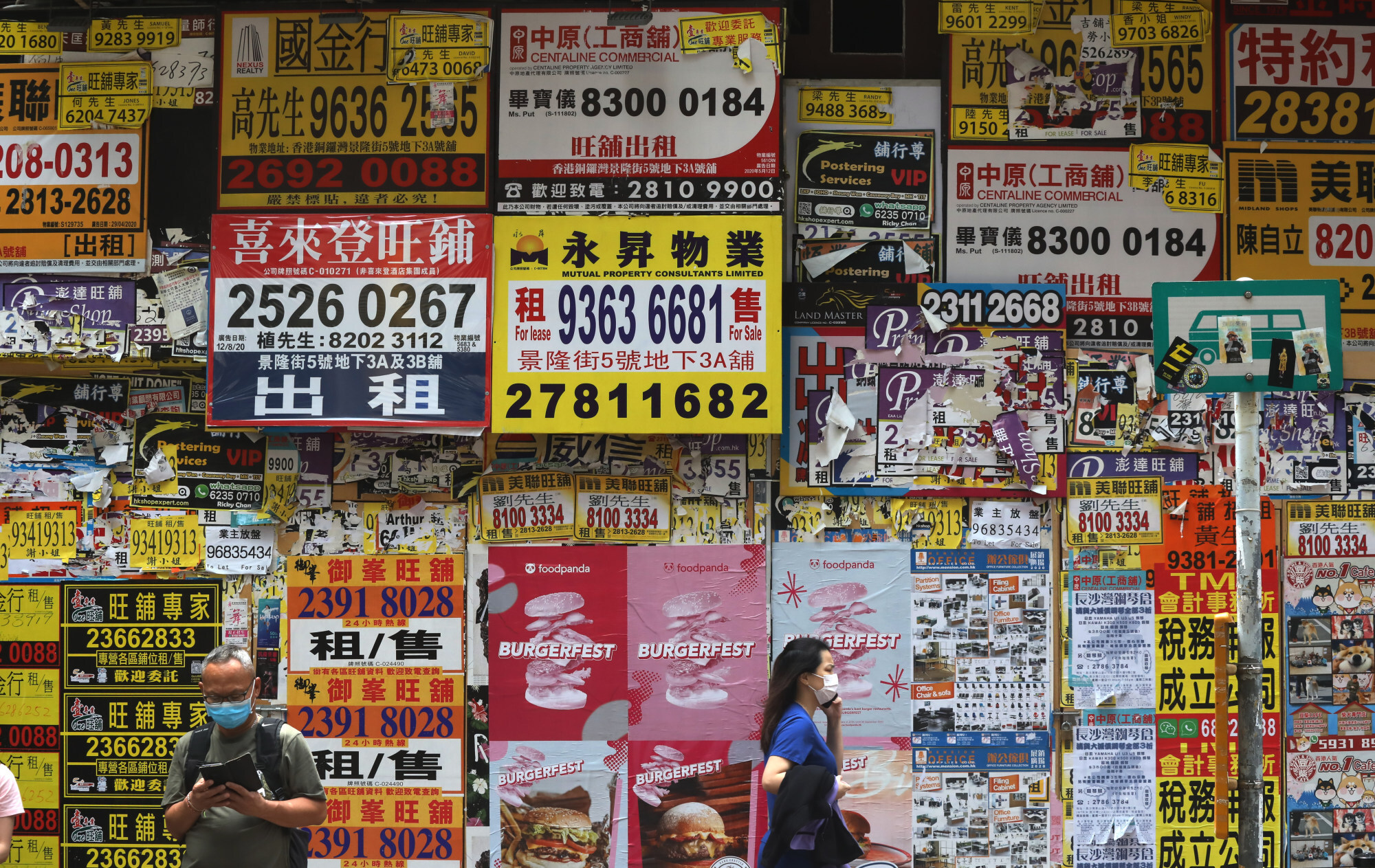
Hong Kong’s Exchange Fund posts US$7 billion quarterly loss amid ‘triple whammy’ hit from slumping stocks, bonds and a stronger US dollar
- The fund lost HK$55 billion (US$7 billion) from investments in the first quarter, its third-biggest loss in 18 years since the fund began reporting its quarterly performance
- The fund’s Hong Kong stock investments lost HK$9.4 billion during the first quarter, compared with a HK$7.6 billion profit a year earlier
Hong Kong’s Exchange Fund reported its third-biggest quarterly investment loss in nearly two decades, as the city’s financial war chest suffered what the de facto central bank called a “triple whammy” hit of devaluing equities, bonds and a stronger US dollar.
“The war between Russia and Ukraine added inflationary pressure in Europe, while rising US interest rates may lead to capital outflow in the emerging market,” Yue said, adding that the Exchange Fund will continue to face such uncertainties in the following months.

Any capital outflow will weaken the Hong Kong dollar’s exchange rate against the US dollar, pushing it to the lower end of its trading band against the greenback, which would compel the HKMA to intervene in the market to keep the exchange rate stable. Hong Kong’s financial markets remain “deep and liquid, so we can cope with these challenges,” he said.
The Exchange Fund, established to defend Hong Kong’s currency peg with the US dollar, will have to sail through rough seas ahead, as the US Federal Reserve has foreshadowed a series of 10 increases in its benchmark rate through the end of 2023 to tamp down rising US inflation. That compels the HKMA, which runs its monetary policy in lockstep with the Fed, to also raise Hong Kong’s rates, which would exert further strain on the city’s slumping economy and stock market.
The HKMA invests the Exchange Fund in the city’s stocks and offshore equities, as well as fixed-income financial products, overseas property and other long-term investments.
The latest quarterly loss at the Exchange Fund contrasts with the HK$51.3 billion gain in the first quarter of last year.
The fund’s Hong Kong stock investments lost HK$9.4 billion during the first quarter, compared with a HK$7.6 billion profit a year earlier, reflecting the 6 per cent decline in the Hang Seng Index and the 20 per cent plunge in the Hang Seng Tech Index during the first three months of 2022.

It lost HK$24.6 billion from its overseas stock investments during the quarter, tracking the 5 per cent drop in the S&P500 index in New York, compared with a HK$18.8 billion profit a year earlier.
The Exchange Fund also lost money in bonds, with losses more than doubling to HK$34.7 billion in the first three months. Bloomberg’s US Treasury Index fell by 5.6 per cent in the quarter, marking the worst quarterly performance since 1973.
The fund reported a gain from foreign-exchange appreciation on its assets, of HK$13.7 billion in the first quarter, compared with a gain at HK$1.2 billion a year earlier. Yue however said if the US dollar continue to rise, the fund may suffer valuation loss later this year. The US dollar Index has risen 8 per cent this year.

The HKMA did not report its returns on long-term investments during the quarter, consistent with its usual practice. The monetary authority’s long-term investments gained HK$39.7 billion in the first quarter last year.
“The stock markets in Hong Kong and the US fell in April, while bond prices continued to drop with the expected [increases] in interest rates in the coming months,” said Everbright Securities International’s strategist Kenny Ng. “The US dollar is likely to rise in the coming months against the Hong Kong dollar and other currencies.”
“All these factors would affect the performance of the Exchange Fund in the second quarter,” Ng said. “The outlook for the Exchange Fund is not optimistic for the rest of this year.” Hang Seng Index lost 4 per cent in April.

